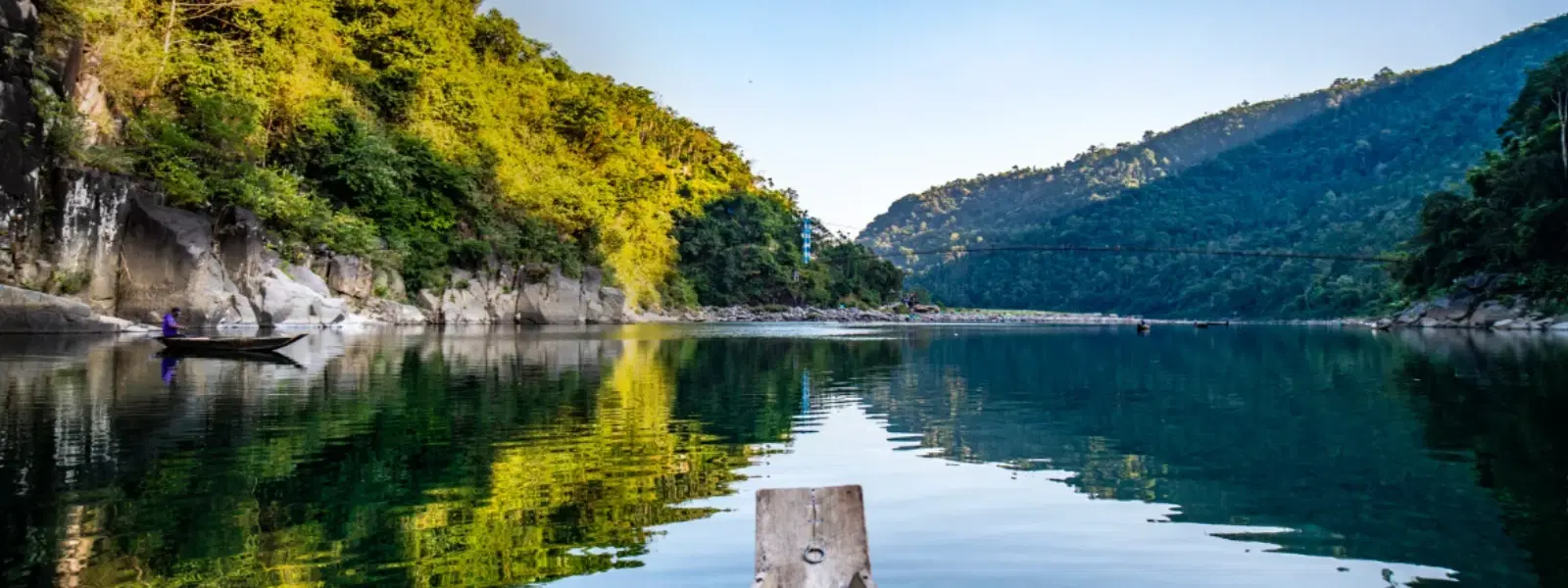
Hotels
•04 min read

The pristine twin jewels of Kashmir, Tarsar and Marsar Lakes, beckon the soul to a world of alpine wonder. Nestled amidst towering peaks and verdant meadows, this trek offers an escape into a realm where nature reigns supreme. The Tarsar Marsar trek in Kashmir is not just a physical journey but a passage through breathtaking landscapes that ignite a spirit of adventure and introspection.
This blog guides you through the enchanting paths of the Tarsar Marsar trail, uncovering its scenic lakes, lush meadows, and rugged terrain. Whether you are an adventure enthusiast, a nature lover, or someone seeking a break from the mundane, you will discover vital insights into one of India's most sought-after trekking routes.
Tarsar and Marsar Lakes are twin alpine treasures that captivate with their mirrored serenity. In Kashmir, these pristine bodies are steeped in cultural and natural significance. They are revered not only for their stunning beauty but also for the spiritual connection the locals maintain with these natural wonders. The trek also offers an opportunity to visit Sundarsar Lake, adding yet another layer to the experience with its captivating charm.
Tarsar Marsar is a jewel in the broader crown of Kashmir’s alpine lakes. The region boasts several notable lakes, each sharing a piece of the same ethereal beauty. While Tarsar and Marsar lead the way, other lakes like Vishansar and Krishansar illustrate the diversity and splendor of nature that adorns Pakistan-administered and Indian-administered Himalayan valleys.
Starting from the scenic Aru Valley, the Tarsar Marsar trail winds through picturesque villages like Lidderwat and Shekwas before approaching Sundarsar. The trek is known for its crossover nature, weaving through varied terrains that include rugged paths, lush meadows, and high alpine lakes. Each step on this route offers views that get more dramatic, encouraging trekkers to appreciate both the journey and the destination.
The trek is dotted with unforgettable moments. Imagine setting up camp by tranquil lakes with the backdrop of snow-capped peaks, or experiencing the exhilarating thrill of crossing the Tarsar Pass. The scenic vistas, rushing streams, and the gentle whispers of nature make this trek a standout adventure amid Kashmir trekking routes.
With a moderate difficulty level, the trek is accessible to beginners as well as seasoned hikers. Spanning 6-8 days, the journey covers roughly 48-50 kilometers, balancing challenging ascents with rewarding descents and breathtaking pauses to soak in the extraordinary vistas.

The optimal trekking window is from June to September. During these months, the weather is pleasant, and the landscape transforms into a vibrant palette of wildflowers and lush greenery, enhancing the beauty of the alpine lakes in Kashmir.
Most trekkers begin their journey from Aru Valley. Accessible from major hubs like Srinagar and Pahalgam, the approach to the trek is well connected. It is wise to factor in time for acclimatization and local travel arrangements to ensure a smooth beginning to your adventure.
Proper preparation is key. Ensure you pack suitable trekking gear, warm clothing, sturdy footwear, and eco-friendly camping equipment. The Tarsar Marsar trail requires preparedness for sudden changes in weather, making reliable trekking gear a must for a safe and enjoyable journey.
Camping near Tarsar and Marsar Lakes is an ethereal experience. The stillness of the lakes coupled with star-studded skies provides a magical setting, perfect for connecting with nature. Practicing eco-friendly camping is essential to preserve these stunning locales for future adventurers.
This trek is a paradise for photographers. The ever-changing landscape, unique flora and fauna, and serene waters create a perfect canvas for capturing nature in its purest form. Tarsar Marsar camping spots, in particular, are ideal for those wishing to immortalize their trek memories.
Encounters with local shepherds and residents enrich the trek experience, offering insights into the vibrant cultural traditions of Kashmir. Their stories and hospitality add a human touch to the rugged wilderness, making every moment on this trail more memorable.
Prioritize physical preparation with regular exercise and altitude acclimatization. Trekking with a group or a seasoned guide is recommended for both safety and enhanced enjoyment of the Tarsar Marsar trail experience.

Be ready for unpredictable weather and the possibility of altitude sickness. Always have a backup plan, stay hydrated, and listen to your body. The journey demands respect for nature’s unpredictable temperament.
Embrace Leave No Trace principles to maintain the natural beauty of Kashmir. Respect local cultures and minimize your ecological footprint at every turn to ensure this alpine paradise remains unspoiled.
Did you know? Marsar Lake is often shrouded in mist, adding an air of mystery to its beauty. Locals believe the lake has a spiritual aura, and its remote location makes it one of the most untouched alpine lakes in Kashmir.
Tarsar, Marsar, Sundarsar, Vishansar, Krishansar, Gadsar, and Gangbal are some of the most famous alpine lakes in Kashmir.
Marsar Lake is often enveloped in mist, and its secluded location adds to its mystique. Locals attribute spiritual significance to the lake.
The trek does not involve summiting peaks, but the highest point is the Tarsar Pass, which offers stunning panoramic views.
The trek typically spans 6-8 days, covering approximately 48-50 kilometers.
The best time is from June to September when the weather is favorable, and the meadows and lakes are at their most picturesque.
The Tarsar Marsar trek is a journey into the heart of Kashmir's alpine beauty, offering adventure, tranquility, and a deep connection to nature. With mesmerizing landscapes, cultural encounters, and unique moments like camping by untamed lakes, the trek is a must-do for every explorer. By planning meticulously and trekking responsibly, you not only experience the majestic allure of the Himalayas but also contribute to preserving this pristine environment for generations to come.